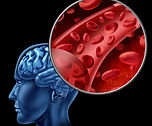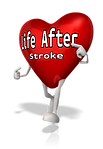St Mary's Hospital Stroke Rehabilitation Unit
Phoenix Park, Dublin, Ireland


Introducing the Dietitian
The importance of Dietetics in the early stages of
Recovery and Rehabilitation


The Dietitian can help support you right through your rehabilitation journey when it comes to nutrition and hydration. She can calculate how much of each nutrient you require to help build up your muscles again and to give you enough energy to be able to work with the other therapists. This will help to achieve your own personal goals such as working towards walking again or being able to prepare a meal in the kitchen. She will ask some questions about the foods and drinks you like to include in your diet, and how much of them you eat. This can give her a good idea about how much nutrition you are already taking in, and to see if you are getting enough for what you require to keep you healthy and to help you get the most out of your own personal rehabilitation process. If there is a gap in what you require she might recommend different more nourishing foods or drinks to help meet this gap, but it will all be led by your own preferences and choices. Everything discussed will be very much individual to you and you alone, and you choose your own personal goals.
After many people have had a stroke, there can be many things that might affect how well someone might eat and drink. Some people’s swallow may have been affected and they might need to be fed through a feeding tube in the earlier stages. Other people may have been recommended by the speech and language therapist to have a diet that is pureed or fluids that have been thickened, to make them safer to swallow.
Some people’s appetites may be reduced because they may not be as active as they were before the stroke. All of these reasons and more can result in a person losing weight very quickly after a stroke. Some other people may gain weight because they might not be able to be as physically active as they were before the stroke.
It is really important that we work on keeping your weight stable, as soon as possible after you have suffered a stroke. This will help reduce the risk of your muscles becoming weaker and to make sure you are getting enough nutrition to keep you as healthy as possible. This is where the Dietitian can help.


Your diet plays a key role in your health and your recovery from Stroke. High Cholesterol, High Blood Pressure and Diabetes can all increase your risk of stroke, but the good news is that a healthy balanced diet can help to better control these things and help to prevent another stroke.
The Dietitian can also answer any questions you may have about diet and help to advise you on the best foods and drinks to include in your diet if you have any of the following:
-
High Cholesterol
-
High Blood Pressure
-
Constipation
-
Diabetes
-
Wounds
-
Anaemia and many more
If you would like to focus on healthy eating to help prevent another stroke, the dietitian offers both 1 to 1 sessions and also group sessions, and your family members or friends are welcome to join in on any of these sessions if you would like them to. Written information can be provided to help support these education sessions.
After you have completed the rehabilitation in Isolda Stroke Unit you may be followed up by your doctor and your nurse specialist in the Day Hospital for a check up. The same dietitian who saw you in the Isolda Stroke Unit, will also be available to meet up with you in the Day Hospital to see how you are getting on from a dietary perspective, and to help support you with any questions you may have for your home setting.





Interesting Web Links for More Information About Healthy Eating

Jackie Boyle
Senior Dietitian
Heart Disease & Stroke
The Irish Heart Foundation Website has excellent information to support you in many areas of health.
You will find this information on areas such as cholesterol, salt, general healthy eating in “Your Health” under “Ways to Live Better”
They also have a selection of healthy tasty recipes available from this link

Weigh to Live is a website that can support you to:
Eat well: make small, gradual changes to eating habits
Stay active: fit activity into daily routine
Have a plan: stick to it and monitor progress
Get help: Get support to keep motivated when times get tough
PHEW is a free, HSE Community Dietitian led, 6 week group weight loss program.
Available in some locations.
See www.hse.ie/phew for more information.

Healthy Weight Loss
Diabetes
If you have diabetes you can find more information to help support you keep your blood glucose (sugar) levels within a healthy range at www.diabetes.ie
You can book a place on the course by going on-line www.hse.ie/xpert

The website www.healthpromotion.ie contains an array of leaflets and resources relating to general healthy eating plus lots of other topics like smoking, alcohol, mental health, drugs, hygiene, immunisation, sexual health, women’s health.
Most leaflets can be downloaded and / or ordered online.
General Healthy Eating Information: www.hse.ie/healthyeating

Health Promotion & General Healthy Eating
General Fact Sheets

The Irish Nutrition & Dietetic Institute (Irish Dietitian organisation) website www.indi.ie has over 70 fact sheets that you can download on various general topics such as: Women’s health, men’s health, nutrition for teens, Sports Nutrition, as well as specific clinical conditions like autism, cancer, arthritis, osteoporosis etc.
